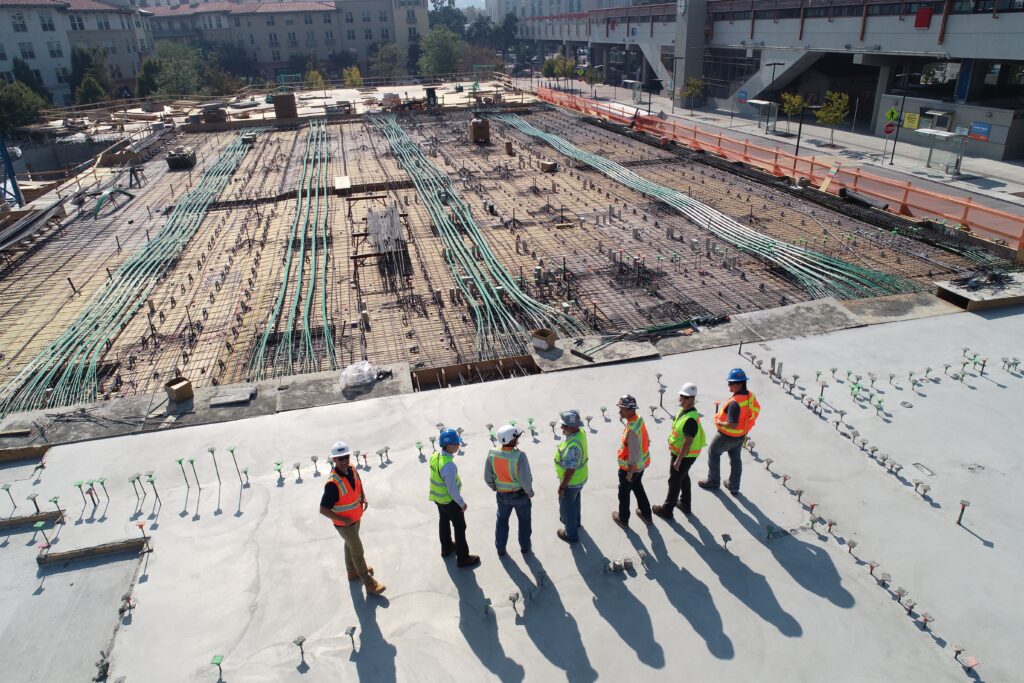It’s no secret that the construction industry has traditionally been male-dominated. The data aligns with this perception. For example, a recent Women and the UK economy report confirms that women make up a small minority — 15% of the construction workforce.

Source: Women and the UK economy
The lack of diversity in construction also extends to ethnicity. According to the latest Building diversity survey, more than three in four Asian or Asian British, and Black or Black British workers have felt that their ethnicity, gender, disability or mental health condition has negatively impacted their chances of promotion in the industry.
Image: Building.co.uk
Thankfully, things are quickly changing; there is now growing recognition that a more diverse workforce can bring several benefits to construction companies.
By introducing different perspectives and ideas into your organisation, you can enable better and more holistic decision-making, tap into new market opportunities and access a broader pool of top talent. These actions, in turn, impact your bottom line. A 2015 study by McKinsey & Company found that companies in the top quartile for diversity were 35% more likely to have better financial returns than the industry average.
The construction industry is making a concerted effort to improve diversity and inclusion in its workforce. Most recently, the Supply Chain Sustainability School partnered with CHAS to deliver [3] the Fairness, Inclusion and Respect (FIR) Growth Assessment. This specialist assessment scheme enables businesses in the construction industry and built environment sector to demonstrate their compliance with best practices in diversity and inclusion.
By getting assessed, construction businesses can receive expert advice on improving their diversity and inclusion and benchmark themselves against other organisations in the industry. Once you’ve gained accreditation, you can use it to prequalify for contracts from companies with target requirements for diversity and inclusion.
How to promote equality, diversity and inclusion in your company
Besides obtaining accreditation and assessments, construction companies can take the following steps to foster a more diverse and inclusive environment.
1. Evaluate your current workforce
Do you have a good mix of employees from different backgrounds and walks of life? If not, it may be time to reassess your hiring practices. Make an effort to recruit employees from underrepresented groups to create a workplace that is welcoming to all.
2. Implement unconscious bias training
One of the best ways to promote equality in the workplace is to address unconscious bias head-on. All employees, from managers to entry-level staff, can benefit from learning about the ways that bias can impact decision-making.
3. Promote flexible working arrangements
Flexible working benefits everyone, but it is especially helpful for employees with caring responsibilities or other commitments outside of work. By offering flexible options, you can make it easier for all employees to balance their work and personal lives.
4. Encourage open dialogue about diversity and inclusion.
It’s important to create an environment where employees feel comfortable discussing diversity and inclusion. You can do this through regular training sessions, town hall meetings, or even casual conversations among colleagues.
5. Celebrate differences
One of the best ways to promote diversity and inclusion is to celebrate the differences that make us all unique. Hold special events or create employee resource groups that focus on celebrating different cultures, races, religions, and lifestyles.
Over to you
Making diversity and inclusion a priority in the construction industry will require a commitment from companies of all sizes. But it is an essential step toward creating a more equitable and successful industry for all.
Author: Alex Minett
| Alex Minett is the Head of Product & Markets at CHAS, the UK’s leading health and safety assessment scheme and provider of risk mitigation, compliance, and supply chain management services. With a working history in the audit and management consulting industry, Alex is experienced in implementing visions and strategies. Skilled in negotiation, management and business development, he is passionate about driving CHAS in its mission to safeguard organisations from risk in the UK. |
Link to Author Image: Minett0008.jpg
LinkedIn: Alex Minett
Image link: https://drive.google.com/file/d/1fj8HorMTHs8AyArO7S7tDEqPpKRLx1Xm/view?usp=sharing
Image link: https://d3sux4fmh2nu8u.cloudfront.net/Pictures/780xany/5/6/9/1891569_figure2_805090.png
Replaced

